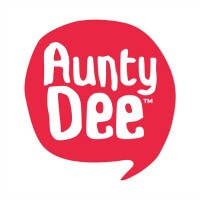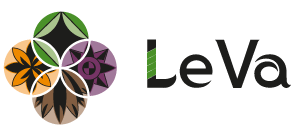
Online aunty helps young people solve problems
 A new website developed by Le Va called ‘Aunty Dee’ is helping young Pasifika and Māori cope with stressful life experiences by providing them with a step-by-step structured approach to problem solving; something that is not necessarily learned in families where collective decision making is the cultural norm.
A new website developed by Le Va called ‘Aunty Dee’ is helping young Pasifika and Māori cope with stressful life experiences by providing them with a step-by-step structured approach to problem solving; something that is not necessarily learned in families where collective decision making is the cultural norm.
Chief executive Dr Monique Faleafa said the website is called Aunty Dee because in many Pacific and Māori communities young people often go to their aunties (or aunty type figures) for advice and help. She believes it is the first web-based tool of its kind for young people in the New Zealand and Pacific region.
“We’re not born with problem solving skills, they are developed over the course of our lives,” Dr Faleafa said.
“But sometimes for young people, the development of these skills does not seem to match the complexity of the problems they are facing in everyday life. This can lead to feeling overwhelmed, distressed, angry, confused or even depressed.
“For Pasifika particularly, if we are taught from infancy that decisions are made in a more collective way, it’s quite possible that problem solving, and the related neural pathways in brain development, is also seen as more collective. Learning problem solving skills as an individual can empower and equip our young ones with tools to deal with what life throws them.”
The Aunty Dee web-tool went live last month (March) and already more than 742 problems have been identified by people to problem-solve.
Rather than provide the answers to people’s problems, Aunty Dee guides people to identify real problems, generate solutions and then act. At the end of the process, people have a plan they can either download or email to themselves.
“Essentially Aunty Dee guides the person to think about and explore problems in an anonymous, engaging, non-stigmatising and structured way. It doesn’t matter what the problem is, Aunty Dee helps people work through it to find a solution,” Dr Faleafa said.
This proven approach is based on Cognitive Behavioural Therapy, a psychological treatment that is shown to be effective for reducing depressive symptoms for young people. Dr Faleafa added that structured problem solving has also shown promising results for reducing the risk of suicide.
She said for vulnerable or underprivileged young people these sorts of interventions aren’t always accessible; which is why it will always be free to use Aunty Dee.
For Pasifika and Māori communities, the use of technology to deliver mental health solutions based on evidence is an important area of emerging research. Suicide death rates for Māori youth are two and a half times higher than those for non-Māori youth, and Pasifika peoples have higher rates of suicidal ideation, suicide plans and suicide attempts than all other ethnic groups in New Zealand.
Dr Faleafa said Aunty Dee reflects many of the recommendations recently published in research in the JMH mental health journal.
“The emerging evidence suggests online mental health support that uses smartphone technologies should, among other things, be based on Cognitive Behavioural Therapy, be designed for non-clinical populations, teach users about the psychological processes underlying distress and the resources available to manage it, and be designed for use in real time when it is needed – not based around weekly appointments or sessions.”
Being a web-based tool means Aunty Dee works on any smartphone, tablet or desktop computer.
Aunty Dee requires only an internet connection to work. There’s no big files to download. We’ve designed it this way so that young people can use Aunty Dee as and when they need her – wherever there is a wifi connection.”
Aunty Dee is part of a broader, long-term strategy to improve the mental wellbeing of young Pasifika and Māori in New Zealand. Its development falls out of New Zealand’s first suicide prevention strategy for Pasifika called FLO: Pasifika for Life, which is led by Le Va.
Dr Faleafa said people who use Aunty Dee are also giving Le Va’s health researchers real-time anonymous and confidential insights into some of the issues that are going on for young people.
She hopes in future that this information will be used to inform and develop targeted wellbeing programmes which address relevant issues for young people today.
Aunty Dee will be officially launched at the Le Va GPS 2016: Growing Pasifika Solutions for our young people conference on 21-22 April. For more information, visit www.auntydee.co.nz.






